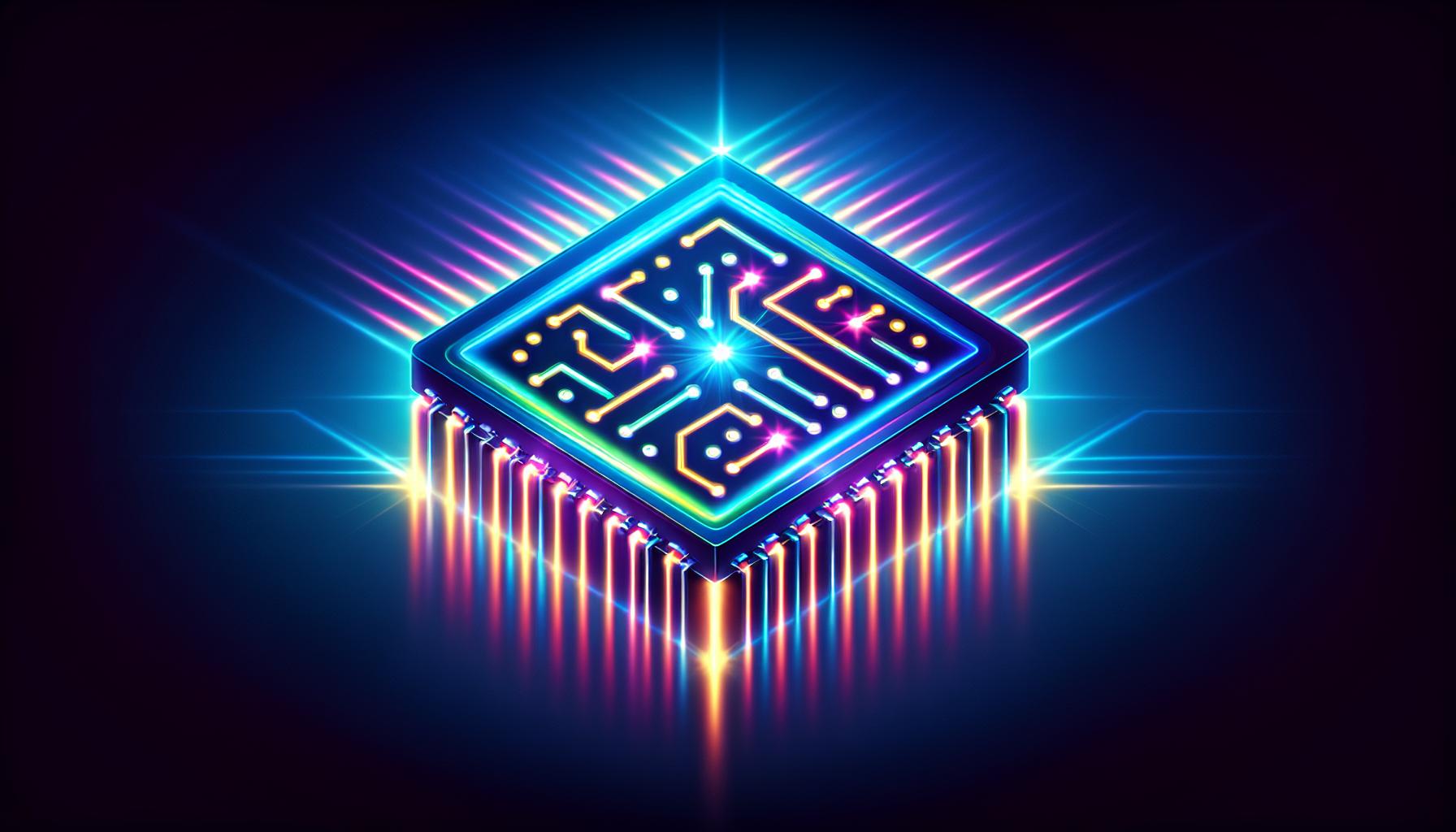University of Pennsylvania Engineers Develop Chip to Boost AI Speed and Efficiency
Engineers at the University of Pennsylvania have created a groundbreaking computer chip that utilizes light waves to perform complex calculations, potentially revolutionizing the speed and efficiency of artificial intelligence (AI) systems. The silicon-photonic (SiPh) chip, which is designed to manipulate light for computations, could significantly enhance computer processing power while reducing energy consumption.
The chip, a result of research led by Nader Engheta, a renowned engineer and professor at Penn, integrates the SiPh platform with Engheta's work in manipulating materials at the nanoscale. Silicon, a widely available and inexpensive element, is used in the chip's design, making it suitable for mass production.
Unlike traditional computer chips that rely on electrical signals, the SiPh chip harnesses the speed of light, which travels at approximately 186,000 miles per second. This breakthrough technology presents a major opportunity for AI systems to advance and mimic human cognitive abilities such as learning and problem-solving.
The collaboration between Engheta's team and Firooz Aflatouni, an associate professor of electrical and systems engineering at Penn, aims to overcome the limitations of today's computer chips by leveraging the interaction between light waves and matter. By altering the thickness of specific areas of silicon, the chip is able to manipulate light and perform calculations at a rapid pace.
The research primarily focuses on improving the process of vector-matrix multiplication, a vital operation in neural networks that serve as the foundation for modern AI tools. By achieving calculations at the speed of light, the SiPh chip drastically enhances processing efficiency.
Notably, this innovative chip is ready for commercial application, particularly in demand for AI development, such as graphics processing units (GPUs). Its compatibility with existing GPU technology enables seamless integration, providing faster speeds and reduced energy consumption for AI training and classification tasks.
In addition to its performance benefits, the SiPh chip also offers enhanced data privacy. Through simultaneous execution of multiple computations, sensitive data is not stored in a computer's working memory, providing protection against potential hacking.
Research conducted at the University of Pennsylvania's School of Engineering and Applied Science has received support from the U.S. Air Force Office of Scientific Research and the U.S. Office of Naval Research. The implications of this study reach beyond faster and more efficient computing, as it represents a significant step towards creating computers that are not only more powerful but also more secure and environmentally friendly.
The study detailing this groundbreaking development has been published in the journal Nature Photonics.
Analyst comment
Positive news: The University of Pennsylvania engineers have introduced a new type of computer chip that can significantly enhance the speed and efficiency of AI systems. This silicon-photonic chip utilizes light waves instead of electrical signals, promising to revolutionize computer processing power and energy consumption. It is ready for commercial application and can be integrated with existing GPU technology, offering faster speeds and reduced energy consumption. The chip also ensures enhanced data privacy. The market is expected to see increased demand for AI systems and GPUs, leading to growth in the semiconductor industry.













